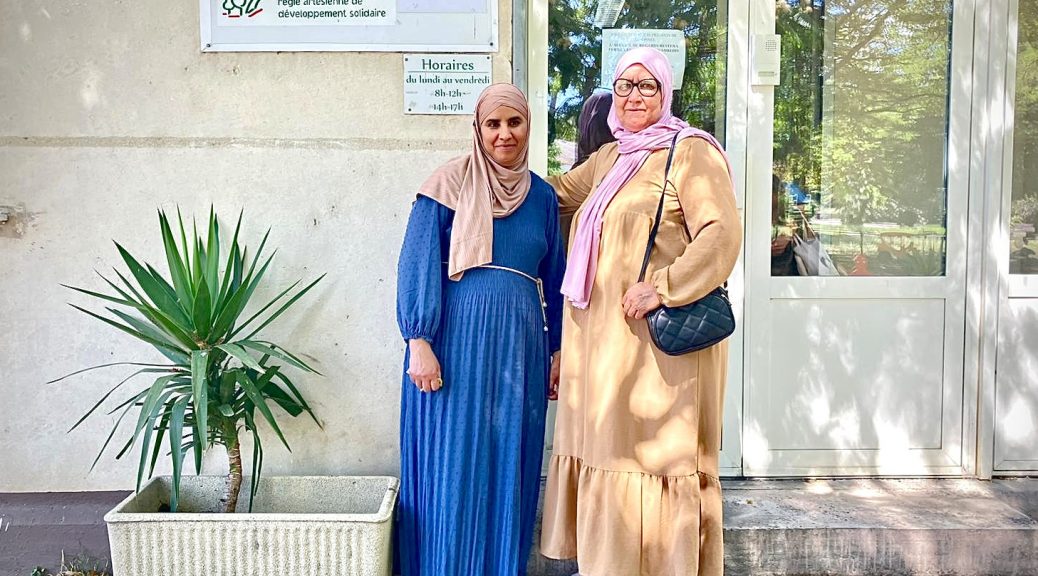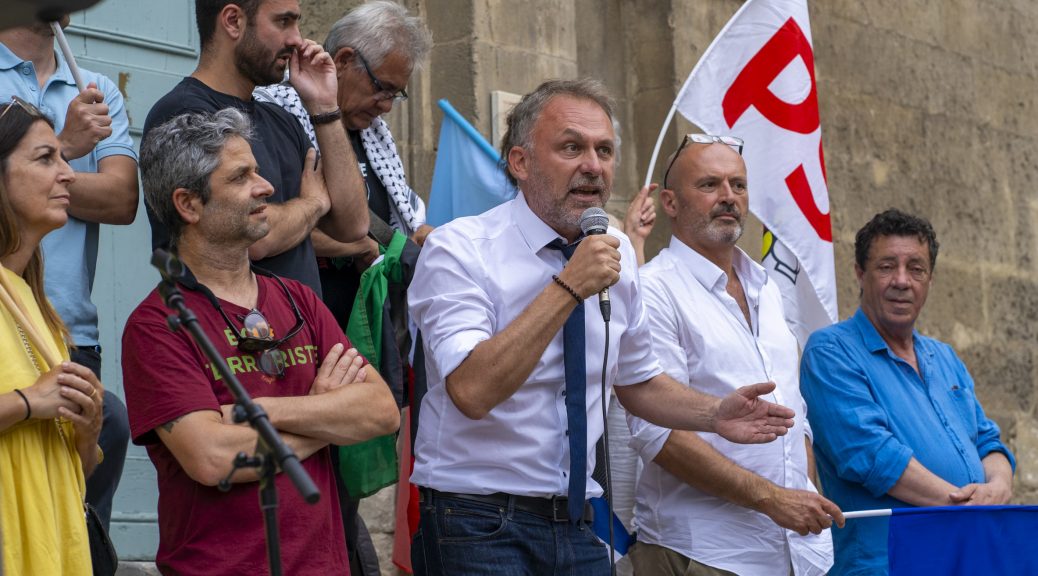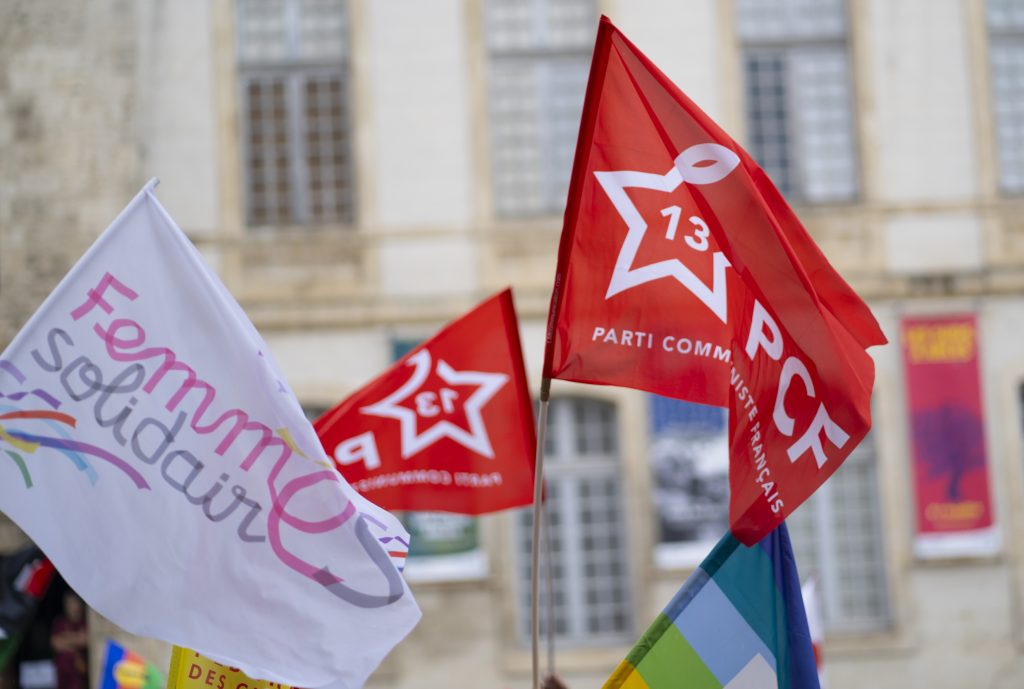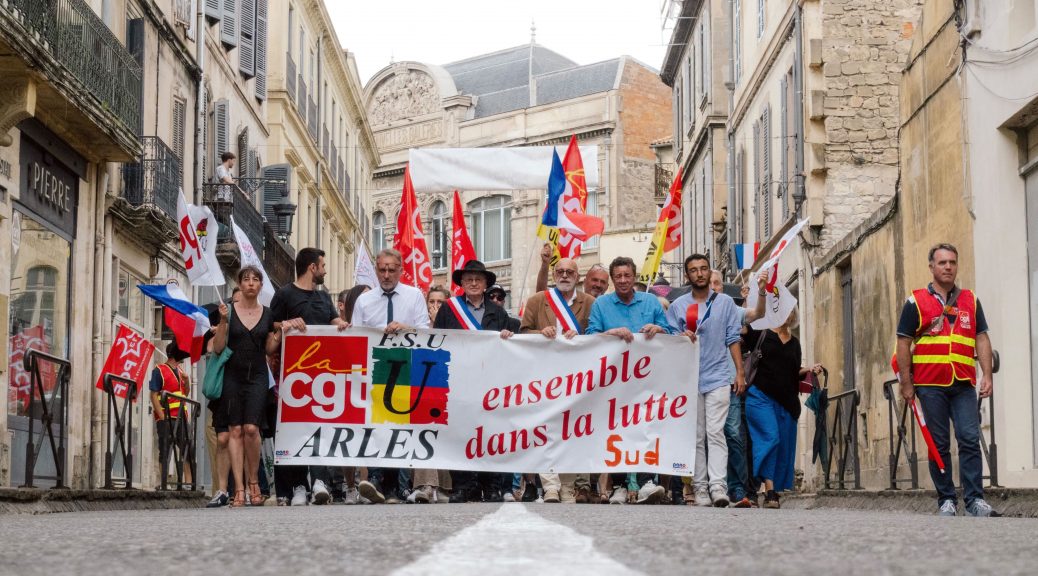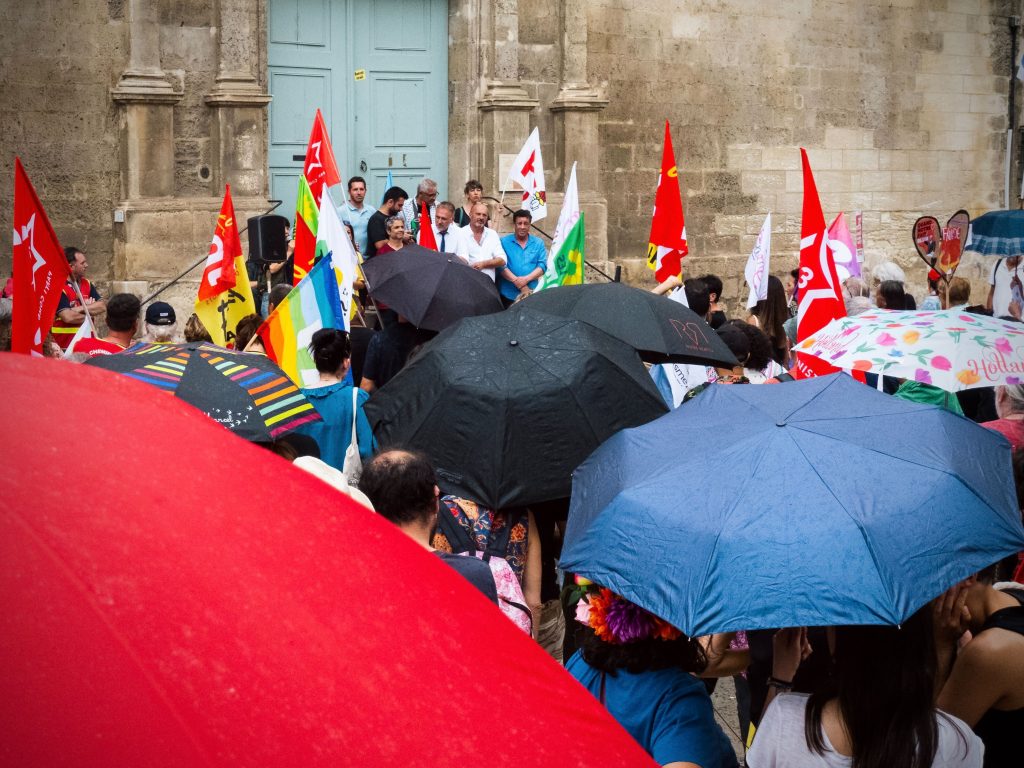Story and photo by Solange Jain
Every weekday morning in Clermont-Ferrand, France, Aoitif Koubaa prepares to go into work as a special education teacher in a Catholic school. Before she walks in the building, Koubaa unpins her hijab, revealing her hair and neck, and places the fabric in her bag. Her hijab won’t be put back on until she leaves the school premises later that day.
Koubaa is one of many women in France affected by a controversial law affecting the display of religious symbols in government institutions. Some women find it unfairly restrictive, while others take a more neutral position or even approve of the principle behind it.
The 1905 French law on the Separation of the Churches and the State established the principle of laïcité (or secularism) in France, which ensures “the free exercise of religion” and that “the Republic does not recognize, pay, or subsidize any religious sect.”
On May 15, 2004, a new law banned the wearing of ostentatious signs of religion, including symbols and garments, in public schools. Discreet signs of religion, however, were not prohibited. Today, obvious symbols of religion, such as a large Christian cross, a Jewish kippah or a hijab, are prohibited in schools, civil service roles and administration roles connected to the state.
I spoke to four women who each represented a different circumstance with regard to their shared practice of Islam, and thus different perspectives on France’s secular laws.
Aoitif Koubaa
Koubaa is a hijab-wearing woman working in a Catholic school, and though it is not a public institution, the fact that it is a school still grants it the right to prohibit hijabs on its students and staff.
For Koubaa, wearing the hijab means covering her most feminine elements (the hair, neck and chest) and respecting the five pillars of Islam: Profession of Faith (shahada); Prayer (salat); Alms (zakat); Fasting (sawm); and Pilgrimage (hajj). Thus, when Koubaa must take off her hijab every day for work she says it feels like a part of her is left outside the school building.
Koubaa believes laïcité does not serve its stated purpose and that it instead specifically targets Muslim women. It’s easy for Christians to hide a cross under their clothes, but almost impossible to hide a hijab, she pointed out. “France is not secular,” she said. “It’s hypocritical.”
With the rise in power of the extreme right in France, Koubaa says that there is more of a negative attitude towards Muslims. Koubaa worries that with the increase of far-right politicians in power, there could be a large reduction of mosques, halal food preparations and Muslim bookstores, for example.
“Even if you’re born here, you will always feel like a foreigner here,” said Koubaa.
Najia Belqasmi
Koubaa’s sister, Najia Belqasmi, also works as a teacher in a public elementary school but, unlike Koubaa, chooses not to cover her hair or dress according to Islamic modesty standards. Laïcité does not have a great impact on her daily life and her opinion strays far away from her sister’s. She views herself as “a child of the Republic” and agrees with the laws resulting from laïcité.
“Each is allowed to think what they want,” said Belqasmi. “It’s a liberty of thinking what you want. This is what laïcité is about and it is important.”
Rabia El Fegrouch
For Rabia El Fegrouch, the decision to wear the hijab is not one that holds a lot of significance. El Fegrouch arrived in France from Morocco on October 22, 2013, to join her husband who had been living in France since 1972.
Since then, El Fegrouch has lived in the Barriol, a neighborhood within Arles with a high concentration of people with North African heritage. Now 61, El Fegrouch has worn the hijab since the age of 7. She says that for her, wearing the hijab does not equate to religion playing a larger or smaller role in her life. The hijab is a part of her overall culture in addition to a show of her faith, and, according to Fegrouch, she wouldn’t change now.
“It is not about what others think,” El Fegrouch said. “It’s my choice.”
In her time in France, El Fegrouch says she has felt little judgment regarding her decision to wear the hijab and her age is a contributing factor in her choice to stay modest.
“It’s OK for young people to not wear it, but I am 61,” El Fegrouch said. “It doesn’t matter what others do.”
It is an inherited part of her culture that she is content to follow, she says, but she does not believe it is something every Muslim woman must do.
Asma Drider
Similarly, Asma Drider, a Muslim woman who started wearing the hijab on the Islam holiday, Eid al-Fitr, of 2023, does not feel that wearing the hijab makes her more or less of a Muslim woman.
“It represents my faith but it’s also just a piece of clothing,” Drider said when asked if she has been treated differently since choosing to wear the hijab.
Drider says the amount of faith she holds has been the same before and since she decided to wear the hijab. She said that when she began wearing the hijab last year, people were surprised at first but quickly got over it, seeing that she hadn’t changed.
“The issue doesn’t come from religion itself,” Drider said. “It just comes from politics.”
Though all four women have had different experiences, they share a distaste for the treatment of hijab-wearing women in France and worry about the possible worsening of the freedom of religious expression.
They all shared the same hope for France: for each person to live their own religion in their own way, without people stepping on others’ beliefs.
The state “can’t take away what is inside of someone,” said Koubaa. “France is a mix of people and beliefs.”
Feature photo: Colleagues Asma Drider (left) and Rabia El Fegrouch (right) have reacted differently to laïcité (secularism) laws.
Katie Thornton and Monica Ronco served as interpreters for this story.

